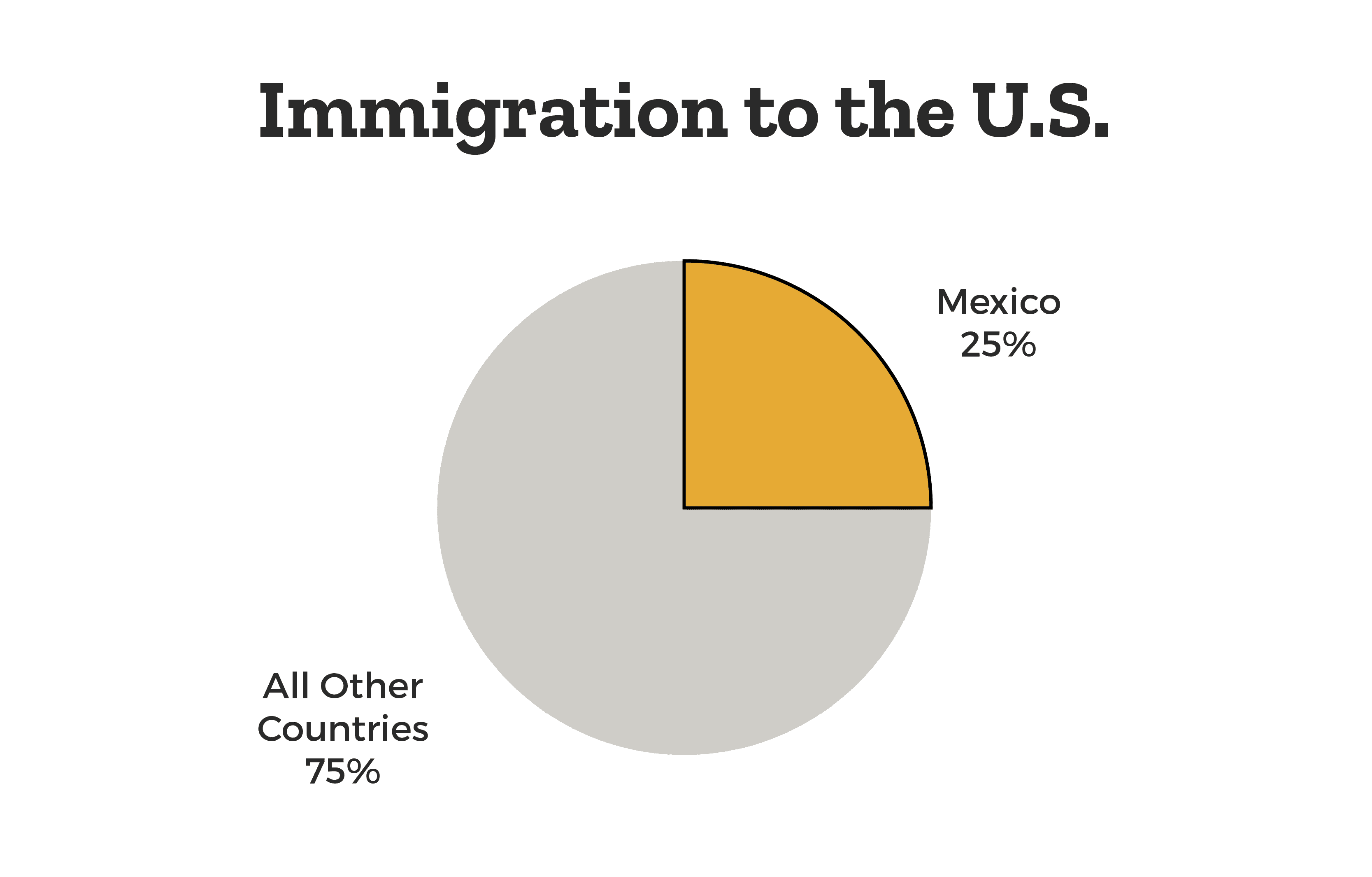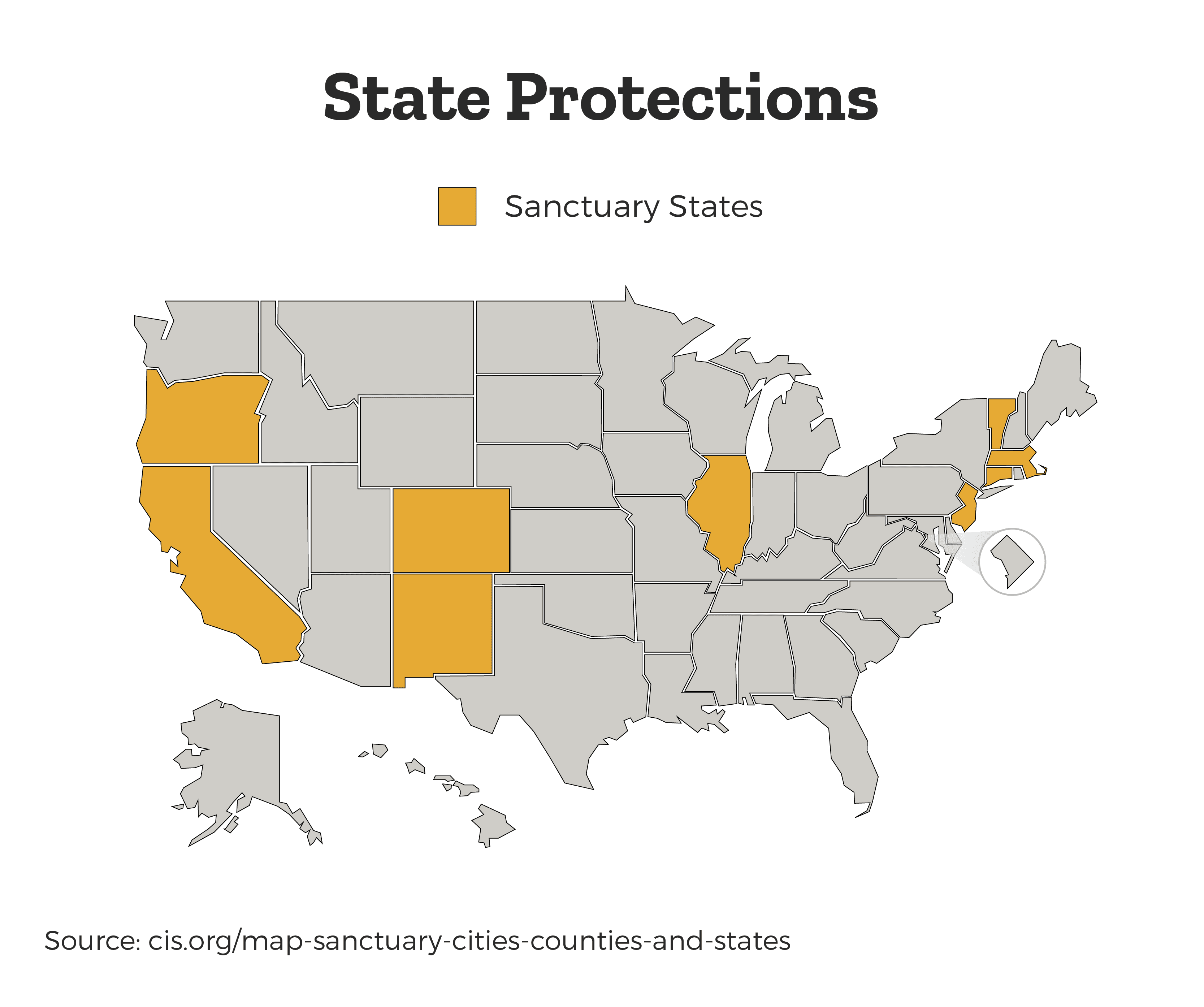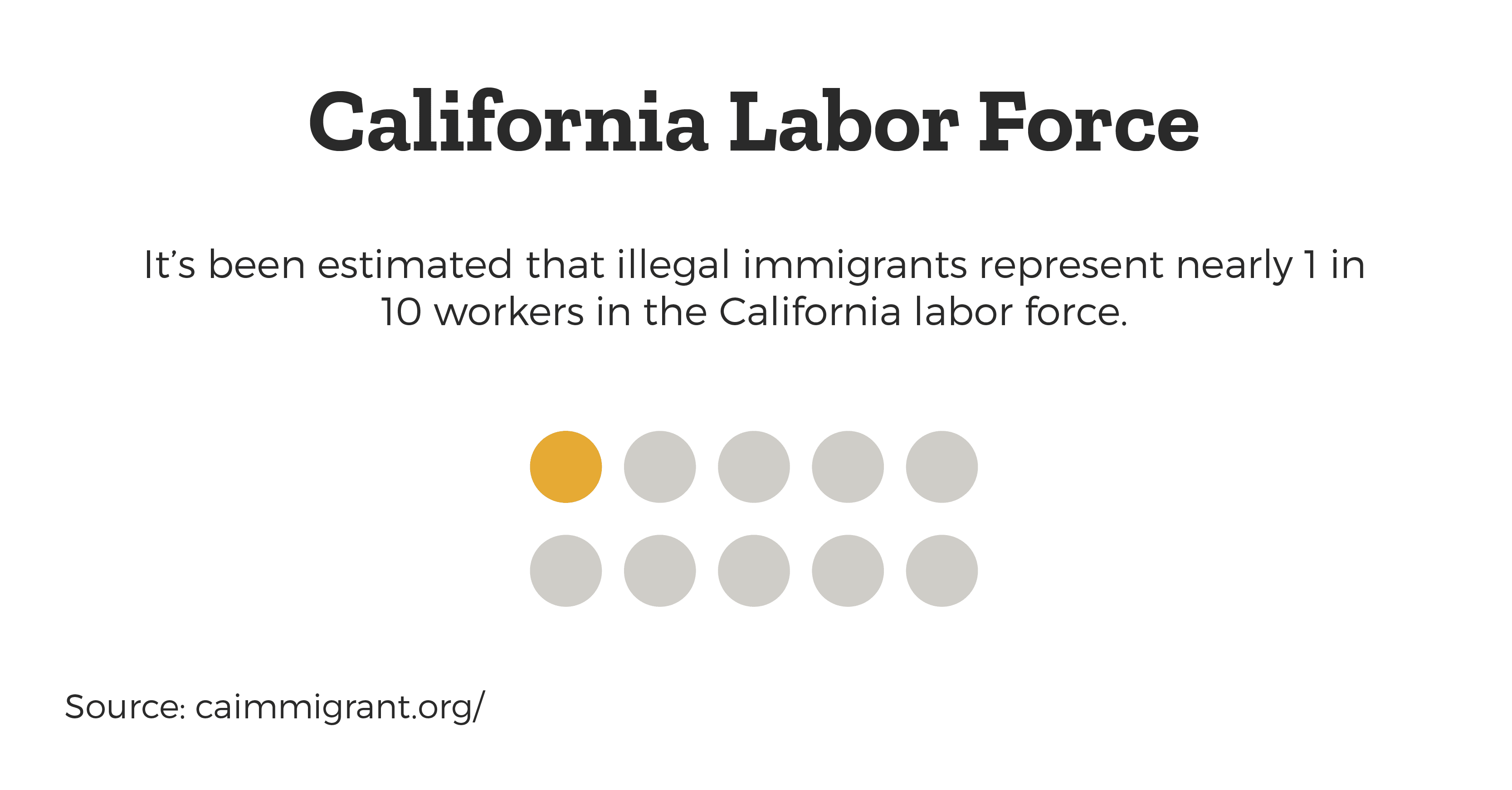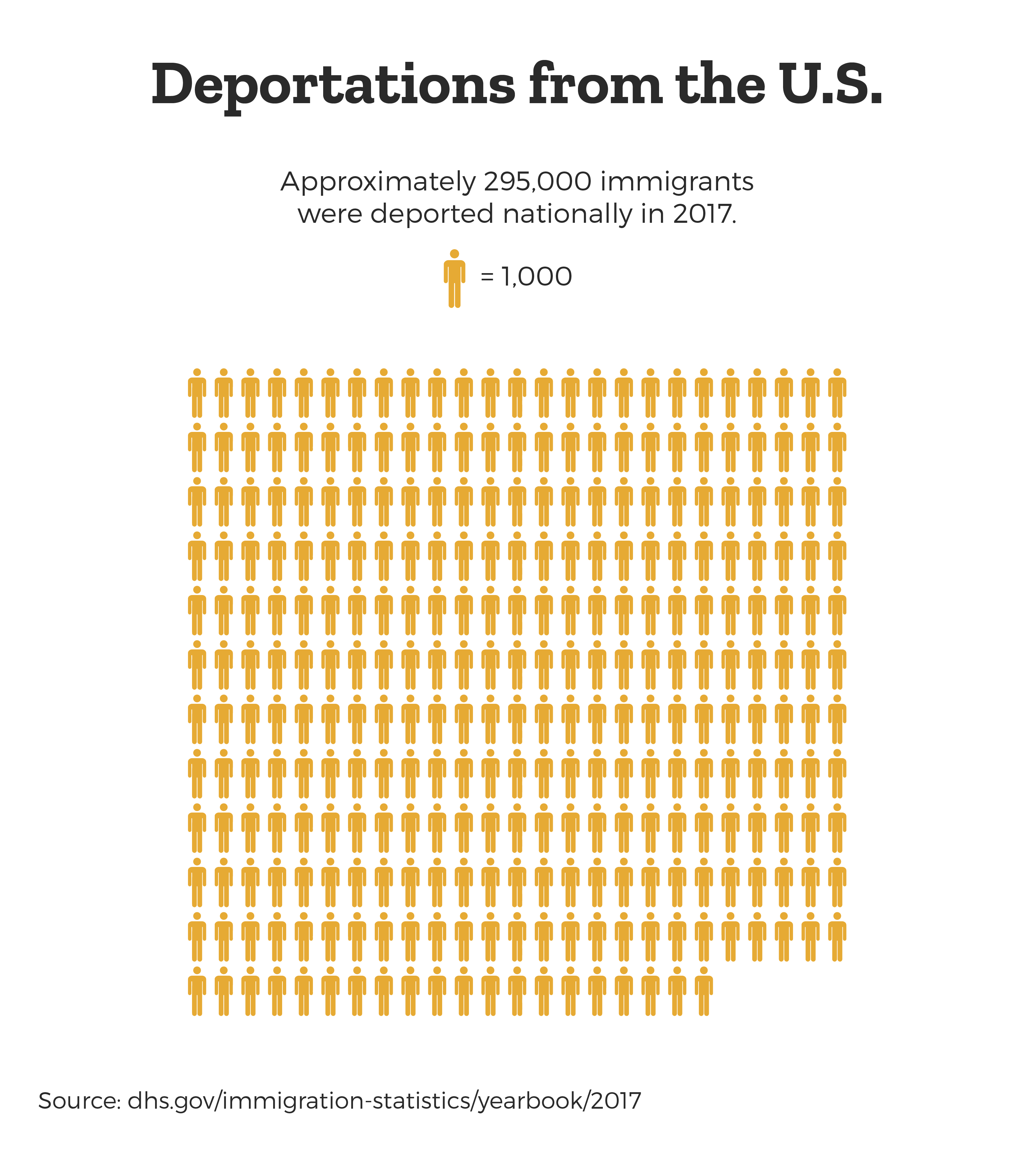Under the current Trump administration, a topic that has been subject to scrutiny from Republicans and Democrats is immigration. California is an area of national focus because Southern California borders directly with Mexico, and immigration from Mexico makes up approximately 25% of all national immigration. Accordingly, California has been responsive to an increasingly high rate of immigration. Every day, people who are not American citizens enter the United States via California for a variety of reasons.

Such classifications of people are known as aliens. The two main classifications of aliens for legal purposes are documented aliens (people who enter the U.S. with legal permission to be present in California and the U.S.) and undocumented aliens (people who enter the U.S. without legal permission to be present in California or the U.S.). Approximately 2 million undocumented immigrants currently reside in California, making it the state with the largest immigrant population in the U.S.
The reasons as to why an alien is present in the U.S. may be legal, such as for tourism or pursuant to a valid work permit, or illegal, such as situations involving the transport of illicit drugs or human trafficking. In response, California has developed a robust body of state-level immigration policies. Most notably in recent history, California passed a piece of legislation called the California Values Act, which effectively designates the state to be a sanctuary state. This means that California provides specific types of additional legal protections (in addition to those provided by federal law) for immigrants, compared to states that have not opted for sanctuary status. However, this law has been quite controversial because the law grants protections that are considered by some to undermine federal immigration law.

Federal law generally bars immigrants from receiving public benefits, voting, and jury service. However, they may receive emergency services, health care, and other benefits relating to the protection of public health and safety. Accordingly, California makes a number of programs available to individuals irrespective of their immigration status, with most involving access to various aspects of health care. For example, California recently extended its state-level medical benefits (Medi-Cal) to all children, regardless of where they were born. This extension is known as Health4All Kids. However, adult immigrants who occupy the U.S. illegally are generally excluded from federal health care programs such as those established by the Affordable Care Act (ACA), which provides federal assistance to U.S. citizens in gaining access to health insurance.
It has been estimated that illegal immigrants represent nearly 1 in 10 workers in the California labor force. Policies relating to undocumented workers vary by county. Thus, the policies in effect in San Francisco may or may not be the same as those in Sacramento or Los Angeles. Federal law requires employers to verify prospective employees’ authorization to work in the United States. However, recent legislation was enacted in California that provides for undocumented farmworkers to join labor unions and support workers’ rights. California also passed the DREAM Act, which makes it possible for illegal immigrants to gain access to education at the same tuition rates as students who are lawful residents of California. The California state legislature has also enacted laws that provide immigrants who attend public colleges with financial aid opportunities.

Generally, California law prohibits state and local law enforcement officers from investigating a person’s legal immigration status based on that person’s appearance alone. This situation is known as profiling, and any person may legally refuse to cooperate with such an investigation. As noted previously, California’s sanctuary status provides an extra layer of protection to aliens. These protections include: requirement that an arrest warrant or a commission of a felony by a suspected illegal alien is necessary to detain such a person, and the prohibition against unauthorized sharing of information relating to a person’s immigration information with federal authorities if that information has not been made public. However, anyone who has been lawfully arrested may have his or her immigration status checked and reported to law enforcement.
Other notable California laws that provide additional protections to immigrants include the Transparent Review of Unjust Transfers and Holds (TRUTH) Act, which requires that detained immigrants be provided basic due process when in law enforcement custody, such as being informed of their rights as immigrants. The Racial and Identity Profiling Act (RIPA) further prohibits illegal profiling by law enforcement by expanding and clarifying the definition of profiling of people suspected of being illegal immigrants based on their race or identity. The Immigrant Victims of Crime Equity Act requires that court officials certify the assistance of immigrants who have been the victims of crimes, thereby granting further protection from deportation. Also, the Transparency and Responsibility Using State Tools (TRUST) Act is a progressive piece of legislation that describes the manner in which local law enforcement agencies may execute requests.
Polls have consistently suggested that over 80% of Californians support a measure by which undocumented immigrants may legally remain in California. Also, many California officials have publicly advocated in favor of preserving the Deferred Action for Childhood Arrivals (DACA) Act, despite the White House’s outspoken position in favor of repealing the law. DACA is a federal law that provides that certain children who are unlawfully present in the U.S. may be granted a two-year deportation deferment and work authorization.

It is estimated that approximately 700,000 immigrants occupy the U.S. based on DACA provisions. The Obama administration announced its intention to expand the provisions of DACA, but the expansion was later reversed subsequently to the installation of the Trump administration. However, California’s sanctuary status cannot eliminate deportation, as deportation is in the control of the U.S. federal government. Any law enforcement agency with the power to make arrests may investigate the legality of a noncitizen’s presence in the United States if they have a justifiable reason to do so. However, a person being interrogated by the police may not be arrested solely based on mere suspicion of being an illegal immigrant. The arresting officer must have probable cause (more than mere suspicion, but less than a legal certainty) that the immigrant is unlawfully present in the U.S.
There is no constitutional requirement that any person must comply with any type of law enforcement investigation. The Fifth Amendment of the U.S. Constitution states that every person has the right to refuse to give testimony, which may tend to incriminate him or her. This protection applies to police interrogations relating to immigration status. Thus, a person who is suspected of being an illegal immigrant is not required to answer questions asked by law enforcement relating to their immigration status or any other matter. However, this protection only applies to statements given by a defendant and not physical evidence, such as fingerprints. There are several federal law enforcement agencies tasked with legal authority to actively enforce the results of these checks performed in California, such as Customs and Border Protection (CBP), the Immigration and Naturalization Service (INS), and Immigration and Customs Enforcement (ICE).
The process of removing an immigrant from the U.S. and transporting them back to their country of origin is called deportation. Deportation begins with a deportation hearing. As a matter of due process, the prospective deportee is entitled to advance notice of the hearing and to be present at the hearing. Many prospective deportees choose to hire an immigration attorney to defend them against deportation and to be present at the deportation hearing. A prospective deportee may hire an attorney, but an attorney will not be provided to them by the government at no cost in immigration cases. During the deportation hearing, a federal judge will consider relevant facts such as the alien’s reasons for being in the U.S., whether the immigrant is employed, whether the immigrant has children born in the U.S., and the alien’s criminal history. An immigrant who has been convicted of violent crimes (e.g., robbery) or crimes of dishonesty (e.g., fraud) may be particularly susceptible to deportation sentencing. The basis of a deportation sentence may be criminal or civil.
The prospective deportee is entitled to examine the evidence against them, present their own evidence and witnesses, and cross-examine the government’s witnesses who testify against them. The standard by which the evidence will be weighed is relevance (the extent that the evidence tends to make a deportation determination more or less necessary). This standard is much lower than that of a conventional civil trial, which is usually evaluated by a preponderance of the evidence (whether the event was more likely than not). The prospective deportee is not entitled to a trial by jury. The ultimate deportation decision will be made by the deportation judge, and the judge is not subject to any statutory limitations when imposing a sentence.
Approximately 295,000 immigrants were deported nationally in 2017, according to the U.S. Department of Homeland Security. However, being that California’s labor force is projected to become increasingly dependent on undocumented immigrants to drive economic growth, California will more than likely continue to evolve and expand its protections for undocumented immigrants into the future.

